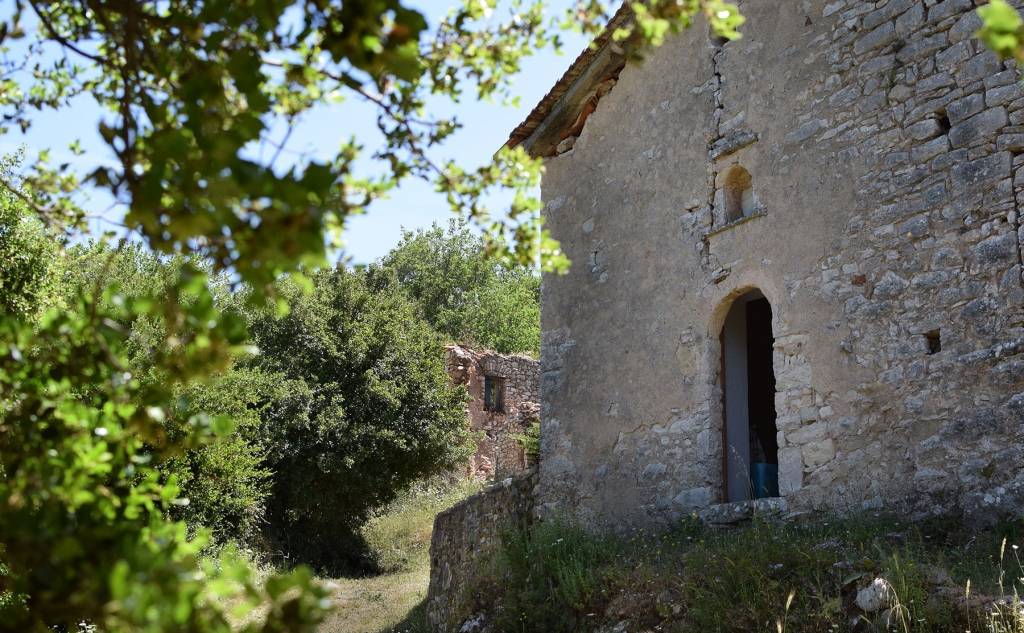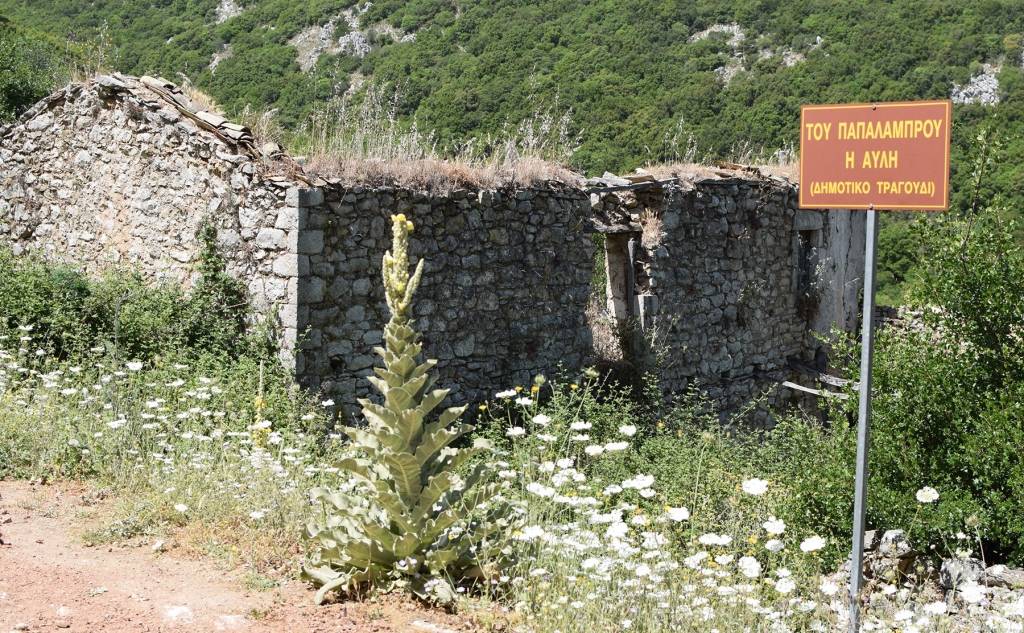At the Papa Lampros’ backyard… (famous traditional song)
THE STORY
Vicar Lampros Zervas was born in Romyri, in the area of Pylia, in 1805 and he served as a priest there from 1940 to 1880.
Stavros Fitsialos, who lived at the same village, had come from Arkoudorema in Arkadia some years before, he had been disserved and had arguments with the Zervas (the family of the priest) and Christopoulos powerful families.
For this reason he sent for 40 thieves who came from Arkadia. They came during the night and they spent the following day hidden in the woods in the east side of the village. The same afternoon they put their plans in practice.. Two of the thieves went to Papa Lampros’ house saying that they were interested in buying an ox that he was selling at the time. The priest’s wife told them that the priest had gone to Pylos, where his son attended school and so he had gone to bring him back home. The priest came back to Romyri quite late and because it was already dark he suggested that the strangers should stay at his house for the night. And so was done.
At night, when the whole family had fallen asleep, the two thieves told the rest of them, who were hidden in the woods outside the village during the day, to come silently into the house, where they started taking-stealing whatever they found. However, they didn’t find any money, so they put oil in the pan and heated it in order to burn the priest so that he would tell them where he had hidden it (the money). One of his daughters called Panagiota, managed to secretly get down to the basement and from one small window she started yelling for help, especially her cousins Giorgos and Kostas.
The whole village woke up and the men took their guns and chased the thieves. Two of them were shot, one of them fatally. Due to the death of the thief, the incident became known to the whole Pylia area. This is the incident that the famous song “Papalabraina” (a name that refers to the priest’s wife) refers to.
The rest of the story
The priest’s son who, this very night, had stayed in Pylos, Nikos, after this dramatic incident went to stay in Athens, in the house of the Mayor Benakis. He studied in Athens, and when he finished his studies he asked to become the police commander of the Pylia province. Maybe, in his mind, there was still the thought of the Fitsialos revenge, who was very old but afraid that the Papalampros family would hurt his son.
Fitsialos, after being encouraged by a friend of his who came from Mani, decided to go to Nikos Papalampros, ask him for forgiveness and kiss his feet. However, Nikos told him to get away because he had tried to kill the whole Papalampros family and now it was too late for apology.
After many years, Fitsialos’ son had his own child and asked Nikos to become his godfather. In this way the old “vendetta” came to an end.
THE SONG
Unfortunately, because of the authentic language that the song is written, it cannot be translated.
During the last decades, some of its lyrics have changed and so this tsamiko traditional song (which was previously danced by brave men) has been transformed into a traditional song that is danced at weddings.
The reason that the rhythm of the song is “tsamiko” and not “kalamatiano” since the incident took place in Messinia, is probably explained by the fact that the Zervas and the other families had their origins in Epirus.
THE BACKYARD
Both the Papalampros’ house and backyard are still there in οld Romyri as they were when the incident happened, without any change, except for the ravages of time.






